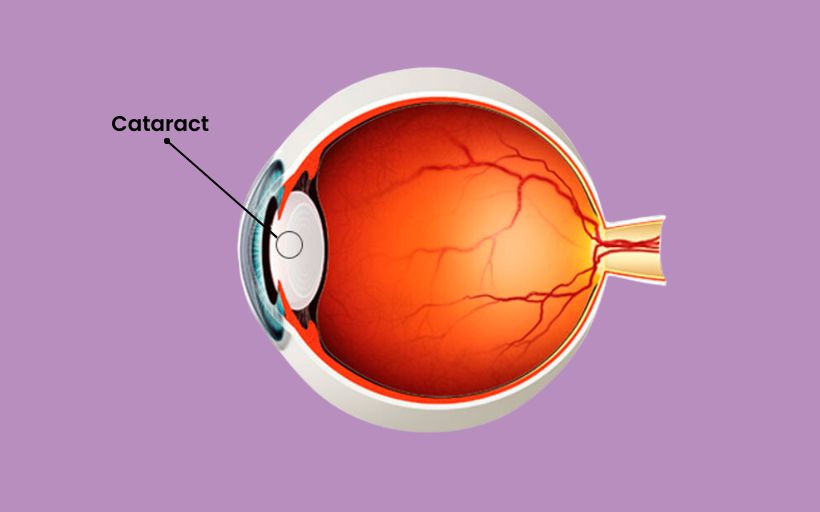If you or a family member has diabetes and is considering cataract surgery, it’s essential to understand how diabetes can impact both the development and treatment of cataracts. Cataract surgery is one of the most common eye surgeries done across the globe, but when an individual has diabetes, the progress of condition recovery time and treatment considerations change. With the right guidance and correct diabetes management, you can ensure a successful procedure. Careful blood sugar management before and after surgery is important, as it affects healing and recovery. Knowing the risks and necessary precautions can help ensure a successful procedure. In this blog post, we will discuss what you need to know to ensure the surgery goes smoothly.
1. Diabetes can accelerate cataract formation
Did you know that people with diabetes are more likely to develop cataracts earlier than those without the condition? High blood sugar can cause the lens of your eye to swell and lead to cloudy vision. Cataracts in diabetics can progress faster, so it’s essential to monitor your eye health regularly and not wait too long to discuss surgery with your doctor.
2. Blood sugar control is key before surgery
Before going in for cataract surgery, your doctor will likely emphasize one thing above all: controlling your blood sugar levels. Stable blood sugar helps your body heal faster and reduces the risk of complications during and after the procedure. It's a good idea to work with your healthcare team to ensure your blood sugar is well-managed in the weeks leading up to the surgery.
3. Your eye health may require extra attention
Diabetes can also affect the tiny blood vessels in your eyes, leading to conditions like diabetic retinopathy. If you have any pre-existing eye issues due to diabetes, your eye doctor may need to take extra precautions during cataract surgery. Make sure your eye specialist is aware of your complete medical history so they can customize the procedure to your specific needs.
4. The surgery itself is safe for diabetics
Cataract surgery is one of the most common and safest surgeries performed today, even for people with diabetes. The procedure involves removing the clouded lens and replacing it with a clear, artificial one. It’s usually quick, often taking less than an hour, and doesn’t require a hospital stay. Despite the extra risks that come with diabetes, cataract surgery is generally very safe when performed by an experienced eye surgeon.
5. You Might Have a Slower Recovery Time
While most people heal from cataract surgery within a few weeks, diabetics may experience a slightly slower recovery process. This isn’t necessarily a reason for concern, but it’s something to keep in mind. Your body’s healing ability can be affected by your blood sugar levels, so continue to focus on maintaining stable blood sugar after the surgery.
6. There are special lenses available for diabetics
One of the perks of cataract surgery is that you’ll have the option to choose the type of lens that best fits your needs. For diabetics, there are specialized lenses that can help correct vision problems beyond cataracts, such as diabetic retinopathy. Be sure to discuss the best options with your surgeon before the procedure. This will ensure you’re choosing the right lens to improve your vision in the long term.
7. Post-Surgery Eye Care Is Extra Important
After cataract surgery, it’s essential to follow all postoperative instructions carefully. For diabetics, this means paying even closer attention to eye care, especially if you have diabetic retinopathy or other eye conditions. Your doctor will likely recommend a combination of eye drops and medications to prevent infection and inflammation, which are more likely to occur in people with diabetes. Also, attending all follow-up appointments is critical to ensure everything is healing properly.
8. Don’t ignore other eye conditions
Cataract surgery can greatly improve your vision, but it won’t fix every problem related to diabetes. If you have other eye conditions, such as glaucoma or macular edema, you may need additional treatments or procedures. That’s why it’s important to have a thorough eye exam before the surgery so your doctor can address any other issues that may affect your vision.
Cataract surgery can be life-changing, especially when it helps you regain clear vision. For diabetics, the process might require a little extra planning and care, but the outcome can be just as successful. By keeping your blood sugar in check, discussing all your options with your eye doctor, and carefully following post-surgery instructions, you’ll be well on your way to a smooth recovery and clearer vision.
For more information, schedule a consultation with our expert at Omkar Eye Hospital for cataract surgery in Chinchwad.


